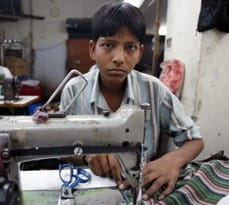On the anniversary of the collapse of Bangladeshi garment factory Rana Plaza, in which 1,129 people died, Dr Kamal Munir says the West needs to re-think its addiction to cheap clothing – and the East its attitude to regulation.

In a wide-ranging interview, Dr Kamal Munir, Reader in Strategy & Policy at Cambridge Judge Business School, draws on his extensive research into the manufacturing sectors of developing countries. He concludes that, while the West has an influential role to play in the choices its consumers make, Asian textile factory owners need to take seriously the inspections and audits of their manufacturing premises that will reveal potential problems. Dr Munir also calls for stronger regulation from governments in the region.
On 24 April 2013, Rana Plaza, an eight-story commercial building, collapsed in Dhaka during the morning rush-hour. Cracks had been reported in the building the day before but warnings not to use it were ignored and garment workers were ordered to come to work as usual, resulting in heavy loss of life.
Robust regulation needed for Asia’s textile industry
Dr Munir says Rana Plaza was just the latest in a series of textile industry accidents across Pakistan, India and Bangladesh.
His research has focused on the global textile value network, which means the majority of buyers are located in affluent western countries while most of the manufacturing takes place in developing countries.
Dr Munir says suppliers should be monitored and scrutinised more closely. His fieldwork, mainly in Pakistan, a major source of textile products, revealed that most big buyers audit manufacturing to an extent but the process is far from comprehensive.
He says the core dynamic of the global textile production system has been affected by the contraction of western economies which has placed strain on consumers’ wallets. Clothing retail chains have been forced to reduce their prices, resulting in pressure on suppliers or manufacturers in developing countries. In turn the factory owners exert pressure on their employees to accept inferior pay and working conditions.
Industrial disasters in the sector have risen following deregulation in 2005, which abolished the quotas that governed exports to the USA. This has resulted in increased pressure on factory owners as they try to cut costs to stay competitive. The cost-cutting in turn creates the ideal conditions for disasters to occur.


